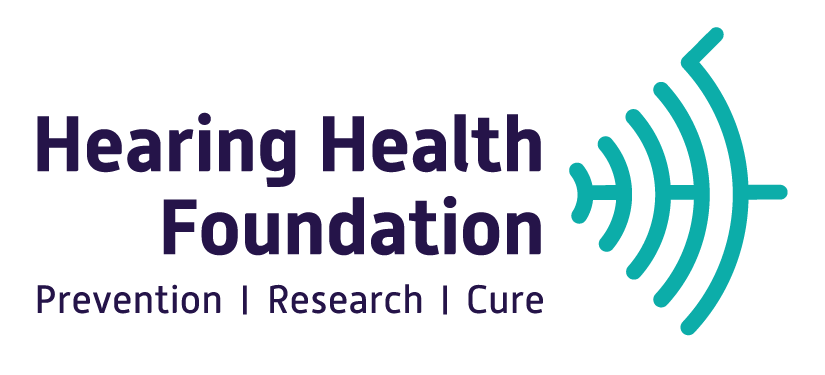One-third of people between 65 and 74 years of age and one-half of those 75 years of age and older have some degree of hearing loss, according to the National Institute on Deafness and Other Communication Disorders. The number of people with hearing loss is expected to continue to rise because of the aging population of the United States.
The World Health Organization says hearing loss is associated with impaired cognition, communication, and balance as well as an increased risk of dementia, falls, hospitalization, and early mortality. The risk of dementia is up to five times greater and the risk of falling up to three times greater in people with hearing loss left untreated.
Credit: Liudmyla Liudmyla/Getty via Canva Pro
To mitigate these risks, it is crucial for older people with hearing loss to be identified in order to treat their hearing. Historically, collaboration between otologists, audiologists, and pharmacists has been limited, but pharmacy graduate students and their advisers at the University of Maryland in Baltimore and College Park recognized that as frontline health care providers, pharmacists have the potential to expand knowledge and facilitate hearing care for patients.
After reviewing the literature on pharmacy, audiology, and their integration, their paper in the Senior Care Pharmacist in July 2022 aims to provide pharmacists with education on hearing loss that colleagues in audiology believe is most critical for pharmacists.
Access to Care
Hearing care is delivered through a clinic-based model by a hearing care professional such as an audiologist or otologist. This model limits access to care for individuals living in remote areas and often leaves the responsibility with the patient to prioritize and seek out their own hearing care. The need for a separate specialized office visit creates a barrier for patients with financial struggles.
Recent changes in legislation led to the approval of over-the-counter (OTC) hearing aids for patients with mild to moderate hearing loss. These hearing aids will be offered, like reading glasses, in pharmacies and other consumer shops. As a result, pharmacists not only may be the most accessible frontline providers, but also be best positioned to promote hearing health and provide on-site consultation.
Geographically, more than 90 percent of people in the United States live within 2 to 5 miles of a community pharmacy. In the United States, 66 percent of adults older than 65 years of age use at least five prescription medications; as a result, most older people interact with a pharmacist multiple times per year. In collaboration with audiologists and otologists, pharmacists can bridge the gap for patients in need of hearing assistance.
Hearing Screenings
According to the U.S. Census population prediction, by 2034, patients older than 65 years of age will outnumber children in the United States. As the population ages, increasing access to screening has never been more relevant. Early identification of hearing loss is key to effective management. Screening is recommended every 10 years for adults and every three years for adults 50 years of age or older and those with risk factors for hearing loss, but compliance with this practice is low.
In the community, pharmacists can informally screen patients for hearing loss, by identifying older patients who ask them to repeat statements made or respond with short, noncommittal answers. A more formal screening is possible when the pharmacist is providing annual wellness visits or medication therapy management.
Enhanced Communication
Apart from screening, there are other ways senior care pharmacists can tailor their practice to better serve older patients with hearing loss. Studies have demonstrated inconsistent knowledge of common health issues among older patients with communication difficulties. Hearing loss can lower the quality of care delivered and lead to negative health outcomes.
Considering the prevalence of hearing loss, pharmacists should anticipate the need for auditory accommodation and have these services readily available to ensure effective communication. Auditory accommodations can include assistive listening devices, written information to supplement verbal communication, and ensuring that the environment is conducive to communication, such as through face-to-face communication in a quiet, well-lit area.
Over-the-Counter Hearing Aids
The U.S. Food and Drug Administration (FDA) has recommended implementing a new device category for OTC wearable hearing devices for adults with no greater than moderate hearing loss. To date, the FDA approval process is not complete, so the following recommendations come from what the authors predict the technology of the approved OTC hearing aids will include.
It is estimated that 28.8 million adults in the United States could benefit from hearing aids, and less than 30 percent have ever used them. OTC devices are intended to address issues with the accessibility and affordability of amplification devices by reducing the regulatory burden of bringing hearing aids to the market.
With OTC devices available for sale in community pharmacies, pharmacists have the potential to provide vital education and counseling to older patients seeking hearing health care, helping to determine if they are a suitable candidate for an OTC hearing aid or if they should be referred to an audiologist or an otologist.
Signs a Patient May Be a Good OTC Candidate
Hearing loss falls within the mild to moderate range
Patient has accurate and consistent perception of his or her hearing ability
Signs a Patient May Not Be a Good OTC Candidate (Prompting a Referral)
Signs of cognitive impairment
Inappropriate expectations about hearing aid benefit
Poor dexterity
Pharmacists should be aware of criteria for immediate medical referral which include dizziness, sudden hearing loss, pain or discomfort, discharge, or excessive earwax. Consulting with a medical professional can rule out an infectious disease or other trauma, or the ability to medically treat (e.g., steroid administration for sudden hearing loss).
Conclusion
Senior care pharmacists are well positioned to help but must be aware of the prevalence of hearing loss in their communities and be actively engaged in screening and person-centered interventions. Collaboration with audiologists and otologists will allow for referrals to be made by pharmacists when an older patient’s hearing loss needs further care.
When OTC hearing aids are made available, pharmacists will need to be able to make recommendations regarding hearing aids but also identify patients who require referral or are otherwise not good candidates for an OTC device. By working with audiologists and otologists, pharmacists have the potential to help mitigate the widespread problem of untreated hearing loss by helping older patients overcome the barriers of access and affordability in hearing healthcare.
This is adapted from “Senior Care Pharmacists, Audiologists, and Otologists: Improving Hearing Health for Older Patients Through Interprofessional Collaboration” in the Senior Care Pharmacist, July 2022. Emerging Research Grants alumna and Hearing Restoration Project member Ronna Hertzano, M.D., Ph.D., is a coauthor of the paper.








While individual neurons in the auditory midbrain may not accurately convey information about sound features, the collective activity of these neurons accurately represents sounds.